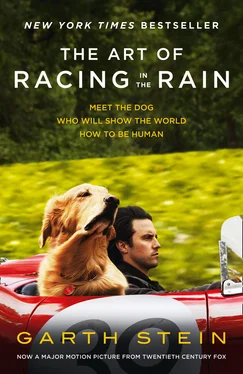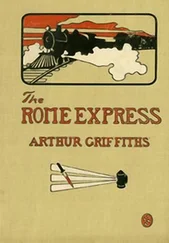But then everyone moved on and left me behind.
I wallowed in the emptiness of my lonely days. I would stare out the window and try to picture Zoë and me playing Enno-Fetch, a game I had invented but she later named, in which Denny or Eve would help her roll a sock ball or fling one of her toys across the room, and I would push it back to her with my nose, and she would laugh and I would wag my tail, and then we would do it again. Until one day when a fortunate accident happened that changed my life. Denny turned on the TV in the morning to check the weather report, and he forgot to turn the TV off.
Let me tell you this: The Weather Channel is not about weather; it is about the world ! It is about how weather affects us all, our entire global economy, health, happiness, spirit. The channel delves with great detail into weather phenomena of all different kinds—hurricanes, cyclones, tornadoes, monsoons, hail, rain, lightning storms—and they especially delight in the confluence of multiple phenomena. Absolutely fascinating. So much so that when Denny returned from work that evening, I was still glued to the television.
“What are you watching?” he asked when he came in, asked it as if I were Eve or Zoë, as if it couldn’t have been more natural to see me there or address me like that. But Eve was in the kitchen cooking dinner and Zoë was with her; it was just me. I looked at him and then back to the TV, which was reviewing the day’s major event: flooding due to heavy rainstorms on the East Coast.
“The Weather Channel?” he scoffed, snatching up the remote and changing the channel. “Here.”
He changed it to Speed Channel.
I had watched plenty of TV as I grew up, but only when a person was already watching: Denny and I enjoyed racing and the movie channels; Eve and I watched music videos and Hollywood gossip; Zoë and I watched children’s shows. (I tried to teach myself to read by studying Sesame Street, but it didn’t work. I achieved a degree of literacy, and I can still tell the difference between “pull” and “push” on a door, but after I figured out the shapes of the letters, I couldn’t grasp which sounds each letter made and why.) But, suddenly, the idea of watching television by myself entered my life! If I had been a cartoon, the lightbulb over my head would have illuminated. I barked excitedly when I saw cars racing on the screen. Denny laughed.
“Better, right?”
Yes! Better! I stretched deeply, joyously, doing my best downward-facing dog and wagging my tail—both gestures of happiness and approval. And Denny got it.
“I didn’t know you were a television dog,” he said. “I can leave it on for you during the day, if you want.”
I want! I want!
“But you have to limit yourself,” he said. “I don’t want to catch you watching TV all day long. I’m counting on you to be responsible.”
I am responsible!
While I had learned a great deal up until that point in my life—I was three years old already—once Denny began leaving the TV on for me, my education really took off. With the tedium gone, time started moving quickly again. The weekends, when we were all together, seemed short and filled with activity, and while Sunday nights were bittersweet, I took great comfort in knowing I had a week of television ahead.
I was so immersed in my education, I suppose I lost count of the weeks, so I was surprised by the arrival of Zoë’s second birthday. Suddenly I was engulfed by a party in the apartment with a bunch of little kids she had met in the park and at her day-care center. It was loud and crazy and all the children let me play with them and wrestle on the rug, and I let them dress me up with a hat and a sweat jacket and Zoë called me her big brother. They got lemon cake all over the floor, and I got to be Eve’s helper cleaning it up while Denny opened presents with the kids. I thought it nice that Eve seemed so happy cleaning up this mess, when she sometimes complained about cleaning the apartment when one of us made a mess. She even teased me about my crumb-cleaning skills and we raced, she with her Dustbuster and me with my tongue. After everyone had left and we had all completed our cleaning assignments, Denny had a surprise birthday present for Zoë. He showed her a photograph that she looked at briefly and with little interest. But then he showed the same photograph to Eve, and it made Eve cry. And then it made her laugh and she hugged him and looked at the photo again and cried some more. Denny picked up the photograph and showed it to me, and it was a photo of a house.
“Look at this, Enzo,” he said. “This is your new yard. Aren’t you excited?”
I guess I was excited. Actually, I was kind of confused. I didn’t understand the implications. And then everyone started shoving things in boxes and scrambling around, and the next thing I knew, my bed was somewhere else entirely.
The house was nice. It was a stylish little Craftsman like I’d seen on This Old House , with two bedrooms and only one bathroom but with plenty of living space, situated very close to its neighbors on a hillside in the Central District. Many electrical wires draped from poles along the sidewalk outside, and while our house looked neat and trim, a few doors down stood other houses with unkempt lawns and peeling paint and mossy roofs.
Eve and Denny were in love with the place. They spent almost the entire first night there rolling around naked in every room except Zoë’s. When Denny came home from work, he would first say hello to the girls, then he would take me outside to the yard and throw the ball, which I happily retrieved. And then Zoë got big enough that she would run around and squeal while I pretended to chase her. And Eve would admonish her: “Don’t run like that; Enzo will bite you.” She did that frequently in the early years, doubt me like that. But one time, Denny turned on her quickly and said: “Enzo would never hurt her—ever!” And he was right. I knew I was different from other dogs. I had a certain willpower that was strong enough to overcome my more primal instincts. What Eve said was not out of line, as most dogs cannot help themselves; they see an animal running and they track it and they go after it. But that sort of thing doesn’t apply to me.
Still, Eve didn’t know that, and I had no way of explaining it to her, so I never played rough with Zoë. I didn’t want Eve to start worrying unnecessarily. Because I had already smelled it. When Denny was away and Eve fed me and she leaned down to give me my bowl of food and my nose was near her head, I had detected a bad odor, like rotting wood, mushrooms, decay. Wet, soggy decay. It came from her ears and her sinuses. There was something inside Eve’s head that didn’t belong.
Given a facile tongue, I could have warned them. I could have alerted them to her condition long before they discovered it with their machines, their computers and super-vision scopes that can see inside the human head. They may think those machines are sophisticated, but in fact they are clunky and clumsy, totally reactive, based on a philosophy of symptom-driven medicine that is always a step late. My nose—yes, my little black nose that is leathery and cute—could smell the disease in Eve’s brain long before even she knew it was there.
But I hadn’t a facile tongue. So all I could do was watch and feel empty inside; Eve had assigned me to protect Zoë no matter what, but no one had been assigned to protect Eve. And there was nothing I could do to help her.
8
One summer Saturday afternoon, after we had spent the morning at the beach at Alki swimming and eating fish and chips from Spud’s, we returned to the house red and tired from the sun. Eve put Zoë down for a nap; Denny and I sat in front of the TV to study.
Читать дальше











![Hubert Bancroft - The Native Races [of the Pacific states], Volume 5, Primitive History](/books/749157/hubert-bancroft-the-native-races-of-the-pacific-s-thumb.webp)
![Hubert Bancroft - The Native Races [of the Pacific states], Volume 1, Wild Tribes](/books/750126/hubert-bancroft-the-native-races-of-the-pacific-s-thumb.webp)